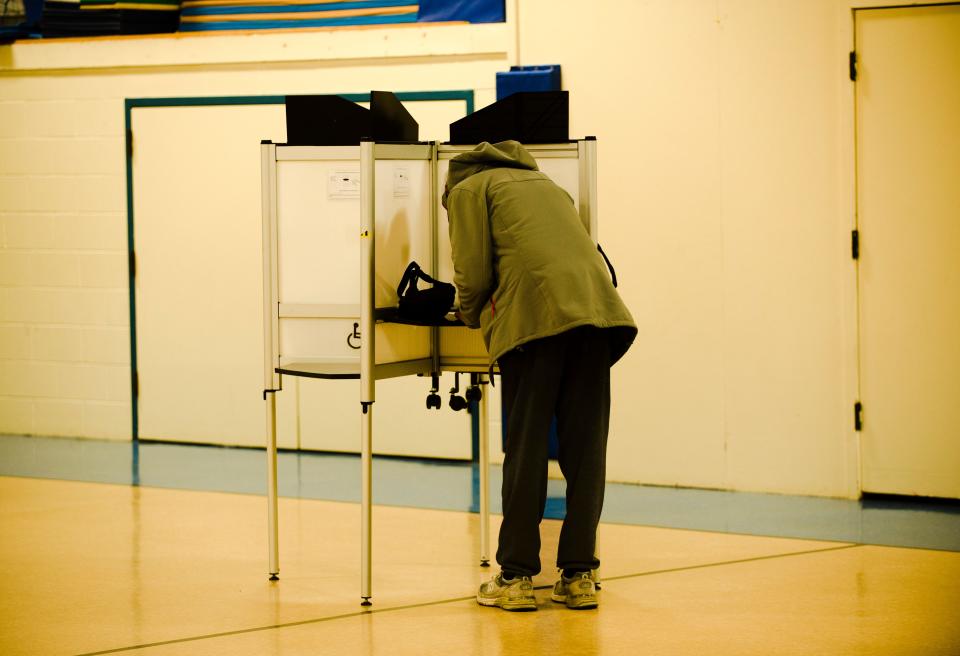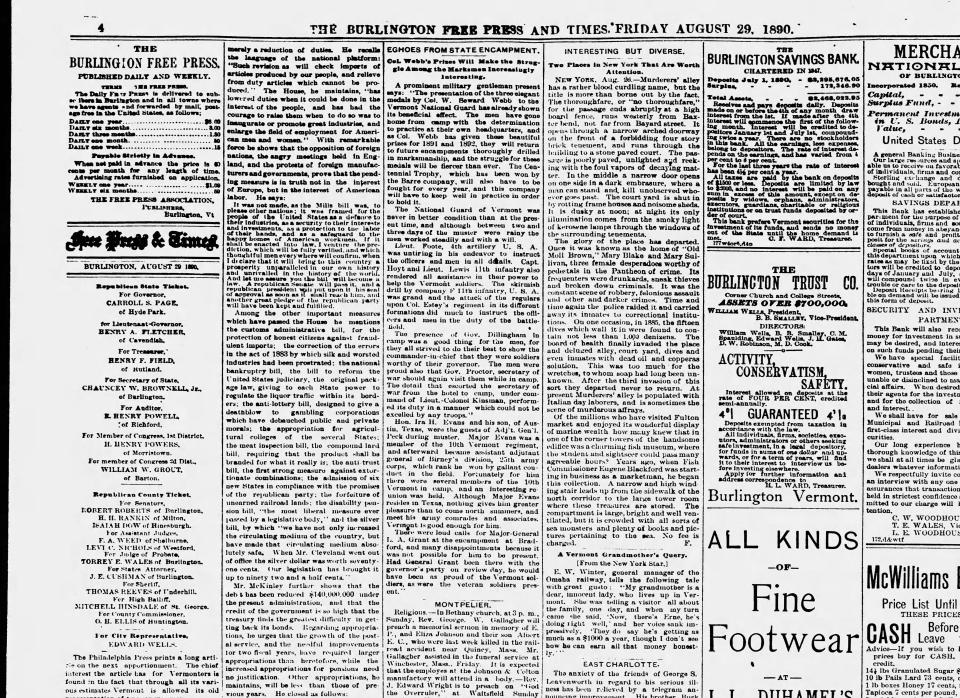In Vermont, ballots are Australian, and in some towns they're replacing town meetings
It's that time of year again when my colleagues and I are calling town clerks to get the details for town meeting, coming up in early March. At our own morning meeting, the talk turned to Australian ballots, the term town clerks inevitably use to describe elections held in conjunction with town meeting. Not just "ballots." Not "paper ballots." No, it's "Australian ballots." Why?
Rather than Google an answer, I decided to call one of my favorite town clerks, Kristin Beers in Milton, who told me she didn't know why it's called Australian ballot, but that I could probably just Google it, or call the Secretary of State's Office. Kristin did have some interesting insights into the Australian ballot, however, which has replaced the town meeting in Milton entirely. No votes from the floor.

"We are 100% Australian ballot, that's how we vote for everything," Kristin said. "Some towns do both, discuss and vote in person and also vote by Australian ballot. Some don't use ballots at all."
Kristin said she's heard her fellow town clerks voice opinions strongly both ways − in favor of Australian ballots and against them. She has been at meetings where some clerks would question whether voters can really understand what the articles they're voting on mean without a thorough, in-person discussion at town meeting. Those same clerks admit, however, that it's hard to find a day and time when everyone will come out and participate in that discussion.
Milton offers an informational meeting the night before the election, where voters can ask questions about what's going to be on the Australian ballot they use to vote the next day. Seems like a good compromise. But I still needed to know, why "Australian" ballot?
Former Free Press reporter wrote the definitive treatment of the Australian ballot
I could have Googled, as Kristin suggested, or I could have called the secretary of state. But instead, I checked our archives where I found a master's thesis on the Australian ballot by my former colleague, Tim Johnson. It must be close to 3,000 words. I remember Tim as a somewhat grumpy, but very good and very thorough reporter, and his story on the Australian ballot from 2014 bore that memory out.
Tim explained the Australian ballot has two key features: It's uniformly printed in advance of the election, by an electoral or governmental authority, and voters cast it in secret. That's an Australian innovation, which debuted in the 1850s, then made its way to Europe, New Zealand and the United Kingdom in the 1860s and 1870s, finally reaching the United States in the late 1880s.
Kentucky and Massachusetts were the first states to enact Australian ballot laws, in 1888, followed by most other states over the next decade, including Vermont. Before the Aussies came up with their electoral innovation, Tim explained, elections were "BYOB," bring your own ballot.
Tim quoted a former state archivist, who described the process. Political parties printed their own ballots, with only their candidates listed, and passed them out to voters.
"Partisan ballots were sometimes printed on paper of distinctive color, or most notoriously, in St. Johnsbury, on paper with zebra stripes," Tim wrote. "If you were a worker in a factory whose owner favored the zebra-stripe candidates and you were spotted on Election Day casting a different kind of ballot, woe to you."
Whoa, bring on the Australian ballot.

Tim also learned that newspapers "had contracts with the parties they supported and published their ballots for readers to clip out." As an example, the Burlington Free Press, staunchly Republican in 1890, printed the Republican ticket in the left-hand column on Page 4 in the Aug. 29, 1890 edition.
Deadly to town meetings? Some people really don't like the Australian ballot
That debate Kristin mentioned between town clerks who favor floor votes at town meetings over secret ballots at elections has been going on for a long time. Tim quotes a UVM professor of political science who wrote in 1964, "While the use of the Australian ballot in general elections is wise, it is another matter to use it in Town Meeting. Its use destroys the chief characteristic of the gathering, the necessity for everyone interested to be there to vote in person on specific issues..."
Fifty years later, Tim notes, another renowned UVM political scientist, Frank Bryan, called the Australian ballot "deadly" to the tradition of town meetings.
"Understand. The Australian ballot takes away your right to legislate − to be part of the lawmaking process − and it doesn't even replace it with a deliberative body that represents you," Bryan said. "It simply allows you to vote up or down, yes or no, on an issue prepared by the selectboard or in many cases by a small group of private citizens with a special interest."
As with so many other things in Vermont, Tim points out we seem to be the only ones holding on to a term or tradition. Maine doesn't reference the "Australian ballot." Neither does Connecticut or New Hampshire or Massachusetts. Even the Aussies have stopped talking about the Australian ballot, according to Tim, who interviewed a Vermont state official who was originally from Australia. He had never heard of the Australian ballot, until he came to Vermont.
"Somehow, everyone came to accept it, learned to live with it, and stopped talking about it − except around here," Tim wrote.
Contact Dan D’Ambrosio at 660-1841 or ddambrosi@gannett.com. Follow him on X @DanDambrosioVT.
This article originally appeared on Burlington Free Press: Vermont insists on calling its town meeting ballots 'Australian'

